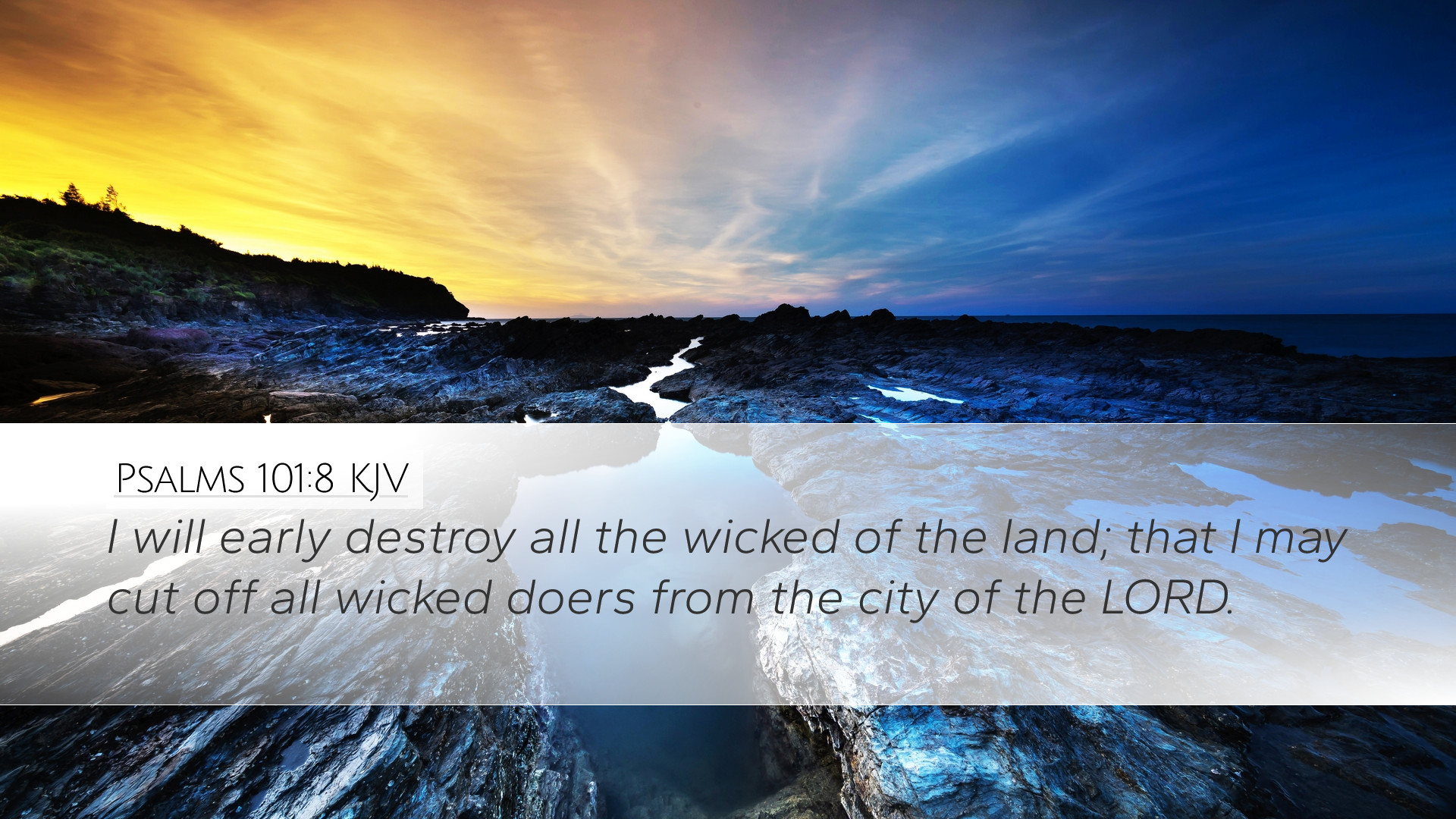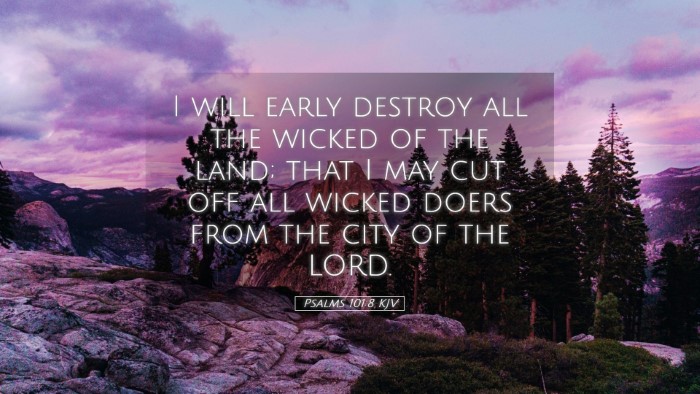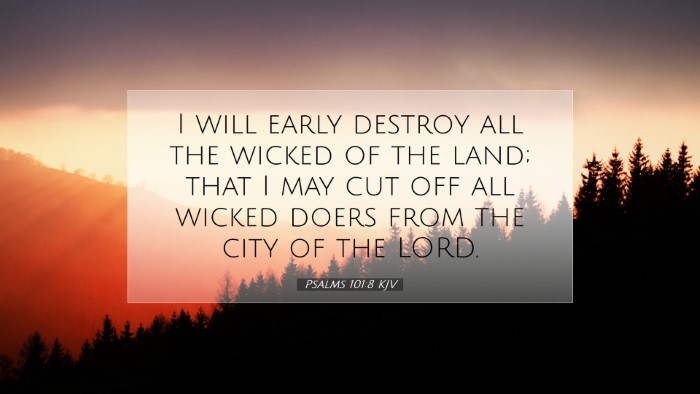Psalms 101:8 Commentary
Verse: "I will early destroy all the wicked of the land; that I may cut off all wicked doers from the city of the LORD."
Introduction
This verse from Psalm 101 presents a powerful declaration of the psalmist's intent to cleanse the land and the Lord's city from wickedness. A commitment of moral integrity is expressed, showing the psalmist's dedication to righteousness and justice. Through insights from renowned public domain commentaries, we will explore the theological significance, historical context, and practical applications of this verse.
Contextual Overview
The Psalm is attributed to David, reflecting his aspirations as a ruler. David's leadership was characterized by a profound desire for justice and holiness among his people. This verse fits within the larger theme of the Psalm, which speaks to the qualities of a godly leader.
Historical Background
In the context of the Ancient Near East, rulers were often seen as the embodiment of divine justice. David's proclamation in this verse resonates with the expectations of Israel's monarchy, derived from both civil and religious laws. His desire to eliminate wickedness from the land underscores the necessity of a leader’s moral integrity and the importance of aligning civil authority with divine principles.
Thematic Analysis
Diligence in Righteousness
Matthew Henry observes that the psalmist vows to act promptly and decisively in addressing wickedness. The phrase "I will early destroy all the wicked of the land" suggests a proactive approach; the psalmist does not wish to delay in fulfilling his duty. This diligence reflects a commitment to personal and collective purity.
The Nature of Wickedness
Albert Barnes highlights the understanding of "wicked" as encompassing a range of behaviors that oppose God's laws. It includes both overt sinful actions and the more subtle moral decay in society. The psalmist's mandate indicates the seriousness of this wickedness and the necessity for its eradication from God’s holy city.
The City of the LORD
Adam Clarke notes that "the city of the LORD" symbolizes not just Jerusalem, but also the broader community of God’s people. The significance here is that the psalmist recognizes the need to maintain a place where God’s presence can dwell, unmarred by sin. This reflects the broader biblical theme of purity within the community of faith.
Theological Implications
Divine Justice and Human Responsibility
This verse encapsulates a profound theological principle: Divine justice requires human action. God calls His people to reflect His holiness. As stated in the commentaries, the psalmist understood that as a leader, he bore the responsibility not only for his own conduct but also for the moral climate of his city. His declaration serves as both a commitment and a call to action.
The Contrast of the Righteous and the Wicked
The juxtaposition between the righteous and the wicked is a recurring theme in the Psalms. David’s intention to "cut off all wicked doers" speaks to the need for judgment in order to preserve and promote righteousness. Henry emphasizes that the removal of wickedness is essential for the flourishing of a just society.
Practical Applications
Leadership and Accountability
For pastors and leaders today, Psalms 101:8 serves as a profound reminder of the importance of moral integrity. Leaders are to actively pursue righteousness and hold themselves accountable for their conduct. The intention to combat wickedness early reinforces the urgency with which leaders should address sin and corruption.
The Role of the Church in Society
The message is clear: as the body of Christ, the church has a role in promoting justice and standing against moral decay in society. The church must embody the values it proclaims and seek to influence the surrounding culture positively, reflecting God's holiness.
Personal Reflection and Action
On an individual level, believers are called to evaluate their lives and actions. The psalmist's commitment invites all followers of Christ to consider areas of compromise and to strive for purity in personal conduct, as well as in community interactions.
Conclusion
Psalms 101:8 is not merely a historical statement but a timeless call to action. It prompts believers to reflect on their commitment to justice and moral integrity. Through the insights gathered from prominent commentaries, this verse can inspire pastors, students, theologians, and Bible scholars to lead lives characterized by righteousness, impacting their communities as lights in a dark world.


